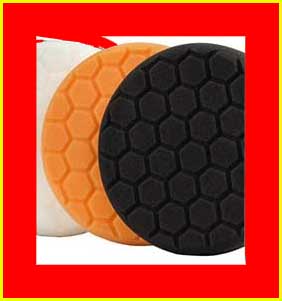I found an excellent write up about using various octane levels in our 2002-05 Birds. Unfortunately I did not get the authors name to attach to this.
There fore I'm telling everyone who reads the these are not my words.
You will find this, I think very interesting & probably answers many of your questions.
Should or shouldn’t use hi octane premium fuel
I hesitate to chime-in here because I always end-up getting beat-up when I've either posted this or opened this dialogue with friends and/or automotive enthusiasts. There is so much myth about gasoline and how it impacts a MODERN engine. I assure ALL of you that you are flushing money out your tail pipes.
I'll explain...
The 3.9L engine in your Thunderbird is a high-compression (performance) engine, with a compression ratio of 10.75:1. Regardless of what gasoline you put into the tank, the compression is NOT going to change. ALL gasoline has the same energy content...PERIOD!
• ALL gasolines sold in the United States have fuel additives which clean the combustion chamber. There is no increase or decrease in the amount of (nitrogen-based) cleaning additive in any given gallon of U.S. gasoline. These additives are required by FEDERAL law. These additives will clean carbon deposits as the additive in the gasoline comes into contact with the internal engine surfaces. Though, different fuel retailers will label their fuel additives by differing marketing terms, it's ALL THE SAME cleaning performance. Adding a bottle of
fuel injection cleaner, etc. to a tank of modern gasoline is wasted money (and depending upon the chemicals in that fuel-injection cleaner, potentially harmful to engine sensors). The same cannot necessarily be said if you fill-up in Mexico.
• Gasoline-air vapor will self-combust (that is, ignite/explode) when compressed. Modern gasoline has additives in the fuel which helps it resist this phenomena...dependent upon the level of additive in the fuel, the more resistance that fuel-air mixture has to combustion under compression. That level of resistance is known as 'octane'. There are several different ways to measure its resistance, but in the United States we use the (R+M/2) method. This is the number posted on the pump.
• All MODERN engines have acoustic "knock" sensors installed on them (your Thunderbird is no exception) which detect pre-ignition/pre-detonation (a.k.a. "knocking" or "pinging") constantly (hundreds of times per second). If the sensors detect engine/spark knock, the
ECM automatically and instantaneously adjusts the spark timing to back-off of the ignition advance to eliminate knock.
• If you put 'regular' (87-octane) gasoline in your tank, and start your car, it will run and idle just fine. As you drive it gingerly down the road, it will run and perform just fine. As you accelerate hard (put a demand on the engine for more performance), the
ECM will advance the ignition timing to account for the milliseconds of expanding ignited fuel energy so that the engine can get the most efficient use of that energy to push the piston down. At the same time, the
ECM is listening for spark-knock. If the
ECM detects spark-knock, it will back-off of the ignition advance (slightly) until the spark-knock is no longer detected. This happens hundreds of times per second, and is indiscernible to the human ear or other senses. When the ignition timing advance is 'retarded', the engine is not operating a 'peak' performance, and therefore, you are not able to eek the maximum engineered horsepower out of the engine at that
moment. This would be known as a performance 'degradation'. Since your Thunderbird engine is naturally-aspirated (not turbo-charged or super-charged), the instances of pre-ignition/detonation is minimal (comparatively-speaking).
Now, with all that said, what does this really mean to a lay-Retro bird-driver? Well, if you decide that you don't want to pay an additional ~50¢/gallon at the pump and opt to fill the tank with 'regular' (87-octane) fuel, you're going to save about $9.00 per fill-up. If you drive your Thunderbird as a cruiser, you're going to realize little to no difference in the performance of your car. You will NOT gain or lose any MPG (remember, there is no difference in energy content of premium fuel versus regular fuel (or anywhere in-between))! Now, if you drive your car like you stole it, accelerate hard from a stop, and put your foot into it when your "accelerating" on the highway, you may be able to notice, or I should more accurately say "measure", a minor horsepower reduction as opposed to the same driving-style with a tank of 91-octane. Why? - Because the
ECM is detecting spark-knock and retarding the ignition advance to eliminate it, which takes away from the maximum-engineered engine performance potential. So, if you don't drive your Thunderbird hard, you can opt for 87-octane fuel and save yourself approximately $450 annually which you can put into your maintenance fund, or spend otherwise.
Ford has included this information (from its engineers) in your operator's manual:
"Your vehicle is designed to use 91 “Premium” unleaded gasoline with an (R+M)/2 octane rating of 91 or higher for optimum performance. The use of gasolines with lower octane ratings may degrade performance. We do not recommend the use
of gasolines labeled as “Premium” in high altitude areas that are sold with octane ratings of less than 91. Do not be concerned if your engine sometimes knocks lightly. However, if it knocks heavily under most driving conditions while you are using fuel with the recommended octane rating, see your dealer or a qualified service technician to prevent any engine damage." (Keyword: "optimum", "may").
If you understood all of that, consider yourself a wiser consumer. Don't let myth, marketing, or outdated information ruin your wallet



